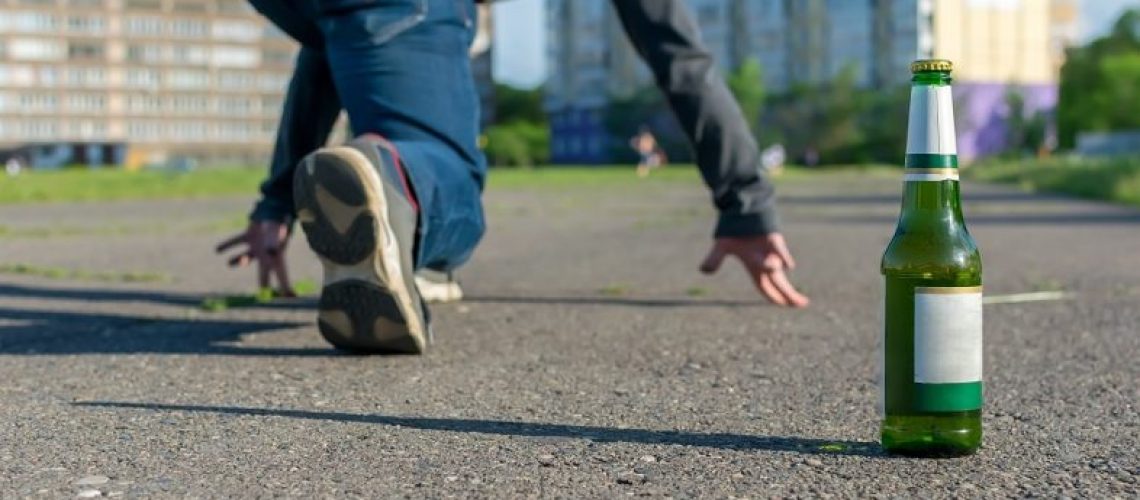Running After Drinking Alcohol: Do They Mix?
It is not unusual for individuals that subscribe to a regular cardiovascular exercise routine to also enjoy one or two beers as part of their lifestyle, though it is a rare few that can be found combining these two activities in a simultaneous manner.
As such, if one were to go running while under the effects of alcohol – or even several hours after their last drink, it is important for them to keep certain things in mind that may put their performance and health at risk.
Generally, running after drinking alcohol or running while still under the effects of alcohol is considered a bad idea, especially when taking the various negative effects of alcohol consumption into account; many of which are only exacerbated by the stress of intense aerobic exercise.
What are the Immediate Effects of Alcohol on Exercise?
Apart from the obvious decrease in one’s cognitive ability, bodily coordination and general ability to perform complex motor tasks, drinking alcohol can set off a set of biochemical effects that will either interrupt or harm the exerciser’s homeostasis and state of health.
The first and most dangerous of these is the stress placed on the cardiovascular system from both short term and chronic or long-term alcohol consumption.
In the short term, such as in the case of an individual consuming alcohol one to two hours prior to a bout of running, they may find that their blood pressure and heart rate are significantly higher than they would normally be, both due to the diuretic effects of alcohol as well as vascular body constriction induced from an increase in the hormone renin.
This can lead to a variety of dangerous side effects, especially when further stress is placed on the cardiovascular system such as in the case of running – with such a situation potentially resulting in heart arrhythmia, an increased chance of stroke, and a decreased capacity for athletic endurance.
Apart from the cardiovascular strain from drinking alcohol, combining the sweating of running with the diuresis one can experience as their liver processes the alcohol will often result in moderate to severe dehydration occurring in short order.
Dehydration, as is commonly documented, is among one of the main factors behind a decrease in athletic performance and dangerous instances of health crises during such athletic performance.
This may take the form of such situations like heat stroke, cramping, seizures, kidney failure and even rare cases of acute swelling of the brain.
As such, while running after one or two alcoholic drinks is unlikely to cause serious harm to an individual, it is best for them to avoid doing so in order to avoid any adverse effects from occurring, either due to an accidental injury or from the various health effects of drinking.
Is it Good to Go Running After a Night of Drinking?
As opposed to running immediately after consuming alcohol, exercising the morning after a night at the bar presents a reduced danger in terms of potential injuries – but is nonetheless still inadvisable due to the various symptoms one experiences with a hangover.
While alcohol has immediate diuretic effects that can kick in as soon as twenty minutes after the drinker takes their first sip, an entire night of drinking can have a cumulative effect that carries over to the next morning, all the more so if the individual has failed to replace fluids lost throughout the night by drinking water alongside their alcoholic beverages.
This can result in the individual still being dehydrated by the time they go for their morning run the next day, which comes with much the same aforementioned risks and detriments as it would if they had begun running immediately after drinking.
In fact, beginning a bout of cardio exercise at this point in time can be even worse in regards to the perceived discomfort the exerciser will experience, as the water lost during running will only worsen any hangover symptoms they would currently be experiencing.
The various effects of dehydration are, of course, in addition to other effects one may experience after a night of drinking, such as an upset stomach or swelling connective tissue that may make running difficult and uncomfortable.
Can Running Sober You Up?
While exercise – especially of the cardiovascular kind – has been shown to speed up metabolism, it does not have a significant effect on serum blood alcohol levels, and as such running will not sober an individual up, especially if they are still metabolizing alcohol in their gastrointestinal and hepatic organs.
Apart from serious medical interventions performed in a clinical setting, one of the only ways available to an individual in order to sober up is to simply wait for their body to process any alcohol they have imbibed.
This may be facilitated by giving the body sufficient enough opportunity to clear the alcohol out of itself, such as through drinking enough water to replace any fluid lost during this period as well as physically resting so as not to draw any energy away from the body’s various organs.
Both of these methods of facilitating a return to sobriety are in opposition to running, of which will dehydrate the individual as well as draw blood and energy away from the various organs responsible for metabolizing alcohol from the bloodstream.
In short, no, running will not sober up a drinker in any significant capacity.
How Does Alcohol Affect Cardiovascular Endurance?
Surprisingly, apart from the dehydration that is a native effect of alcohol consumption, alcohol appears to have little effect on the cardiovascular endurance capacity of athletic individuals.
This, of course, has not been thoroughly studied due to the rather specific and circumstantial nature of such a criteria, and therefore it is best for an individual to err on the side of caution when it comes to testing their physical endurance within two hours of consuming an alcoholic beverage.
In order to compensate for any loss in physical endurance that a night of drinking may have on the exerciser, it is best for them to properly rehydrate and consume foodstuffs high in carbohydrates prior to running or performing other forms of endurance exercise.
How Does Alcohol Affect Muscular Strength?
An often overlooked component of running, the lower body specific muscular strength of an individual can directly translate to their endurance and speed capacity, especially in the case of high level sprinting athletes.
In terms of drinking, the underlying biomechanical mechanisms responsible for the repair and growth of muscular tissue (both hypertrophic and strength-adaptation wise) are impacted significantly by the consumption of alcohol, especially in a post-workout fashion.
This can equate to an individual not only experiencing a temporary decrease in their muscular strength output, but also in the long term as the benefits and muscular gains that they would normally receive from their training are dampened by their regular drinking.
Works Cited:
- Leasure JL, Neighbors C, Henderson CE, Young CM. Exercise and Alcohol Consumption: What We Know, What We Need to Know, and Why it is Important. Front Psychiatry. 2015 Nov 2;6:156. doi: 10.3389/fpsyt.2015.00156. PMID: 26578988; PMCID: PMC4629692.
- Wynne, J. L., & Wilson, P. B. (2021). Got Beer? A Systematic Review of Beer and Exercise, International Journal of Sport Nutrition and Exercise Metabolism, 31(5), 438-450. Retrieved Feb 27, 2022, from https://journals.humankinetics.com/view/journals/ijsnem/31/5/article-p438.xml
- Lakićević N. The Effects of Alcohol Consumption on Recovery Following Resistance Exercise: A Systematic Review. Journal of Functional Morphology and Kinesiology. 2019; 4(3):41. https://doi.org/10.3390/jfmk4030041



